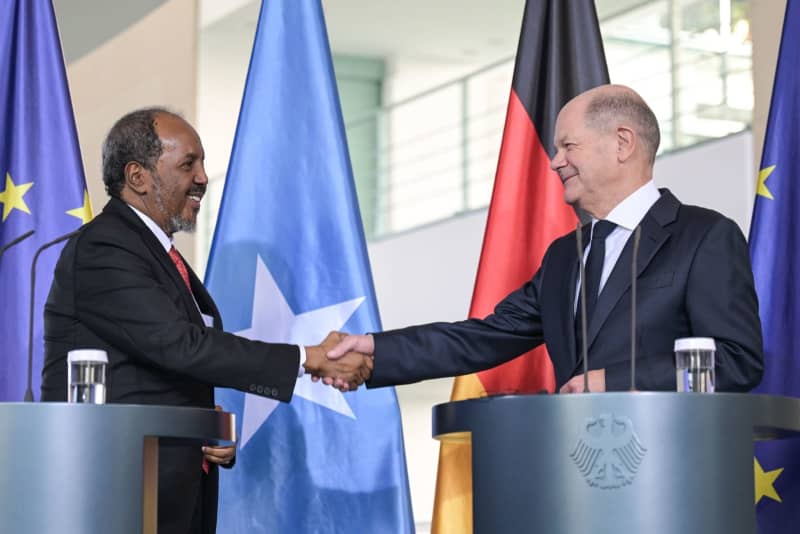Germany and Somalia have initiated a cooperative effort focused on the accelerated deportation of migrants from Somalia who lack legal status in Germany. This agreement was reached following a meeting between German Chancellor Olaf Scholz and Somali President Hassan Sheikh Mohamud in Berlin. The discussions emphasized a mutual commitment to ensure that undocumented migrants are repatriated swiftly and efficiently. Chancellor Scholz highlighted that the deportations would primarily target individuals involved in serious criminal activities, reflecting Germany’s priorities in maintaining public safety while managing its immigration policies.
Chancellor Scholz articulated that the decision to enhance deportations is also in alignment with the interests of the well-integrated Somali community residing in Germany. He acknowledged that there are approximately 65,000 Somalis living in the country, emphasizing that the vast majority have established successful lives and contribute positively to German society. By focusing on the deportation of a “small number” of undocumented individuals, the German government aims to bolster public confidence in the immigration system, which can ultimately benefit the broader community.
During the meeting, both leaders expressed a desire for a long-term partnership that not only addresses the issue of migration but also fosters broader socio-economic development and stability in Somalia. This cooperative stance signals a growing recognition of the complexities surrounding migration, which is often tied to factors such as conflict, economic hardship, and governance in the migrants’ countries of origin. By creating an environment for productive partnerships, both nations hope to mitigate some of the root causes that drive individuals to seek asylum or migrate irregularly.
Furthermore, the agreement resonates with ongoing discussions in Europe regarding migration management, particularly in the context of rising numbers of asylum seekers and undocumented migrants. As governments across the continent grapple with the challenges posed by migration, Germany’s focus on repatriation and the integration of the existing Somali population illustrates a balance between law enforcement and community support. It reflects the German government’s intention to enforce immigration laws while simultaneously recognizing and valuing the contributions of established immigrant communities.
Critics of such deportation initiatives often raise concerns about the humanitarian implications and the conditions faced by repatriated individuals in their home countries. The Somali context, characterized by ongoing security and political challenges, necessitates a sensitive approach to the deportation process. It is crucial for the German government to ensure that the deportations are conducted with due consideration for the safety and dignity of individuals being sent back, recognizing the potential risks they may face upon returning to a country that has struggled with instability.
In conclusion, the agreement between Germany and Somalia signifies a cooperative approach to managing migration and deportation issues. By focusing on repatriation of serious offenders among the undocumented migrant population, the German government seeks to enhance public safety and support the integration of the Somali community. Both nations aspire to address the complex backdrop of migration through collaboration, ultimately aiming for a system that respects human rights and promotes stability in Somalia. As discussions continue around migration policy in Europe, this partnership serves as an important case study in the interplay between national security and humanitarian considerations.

